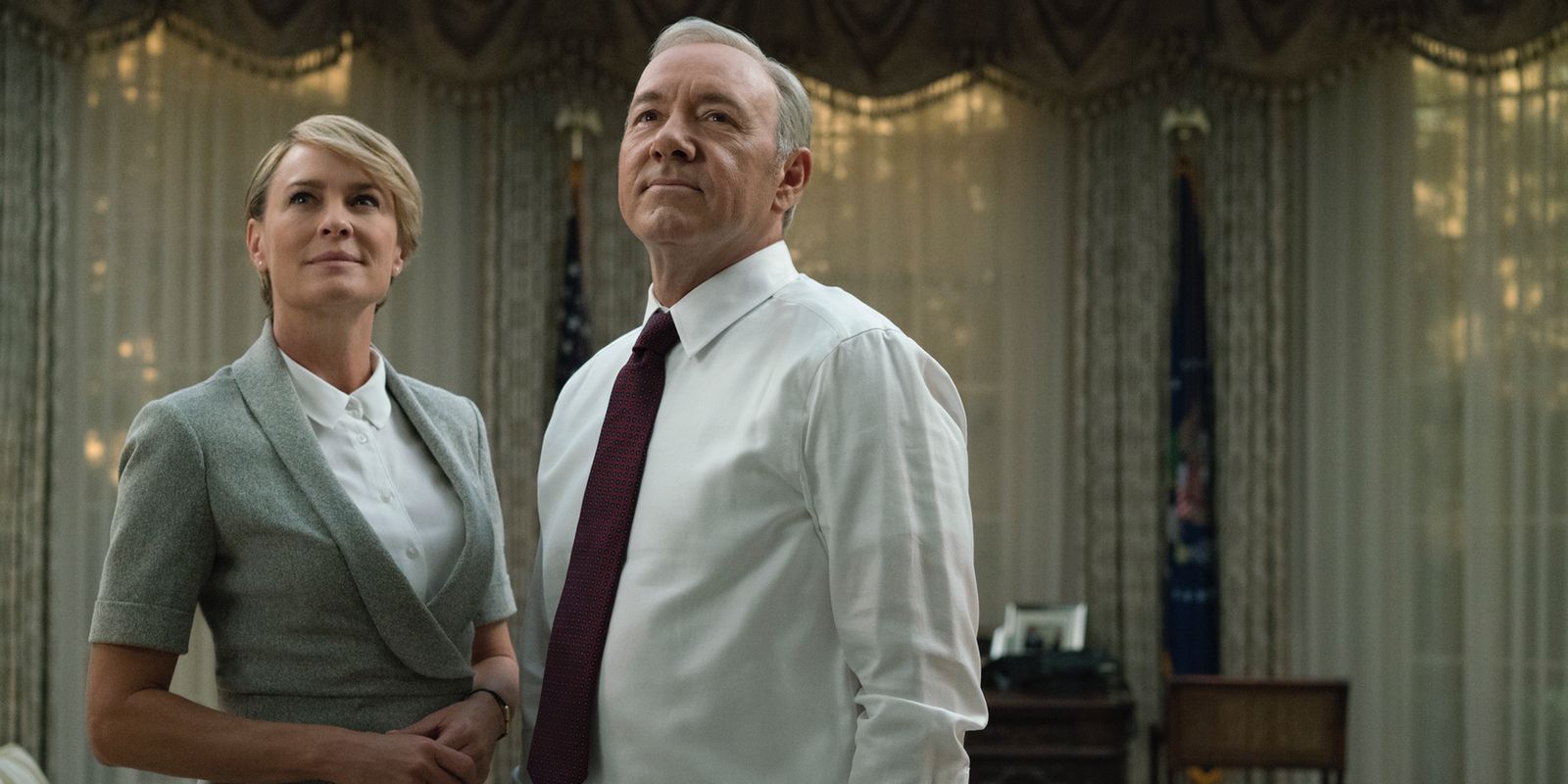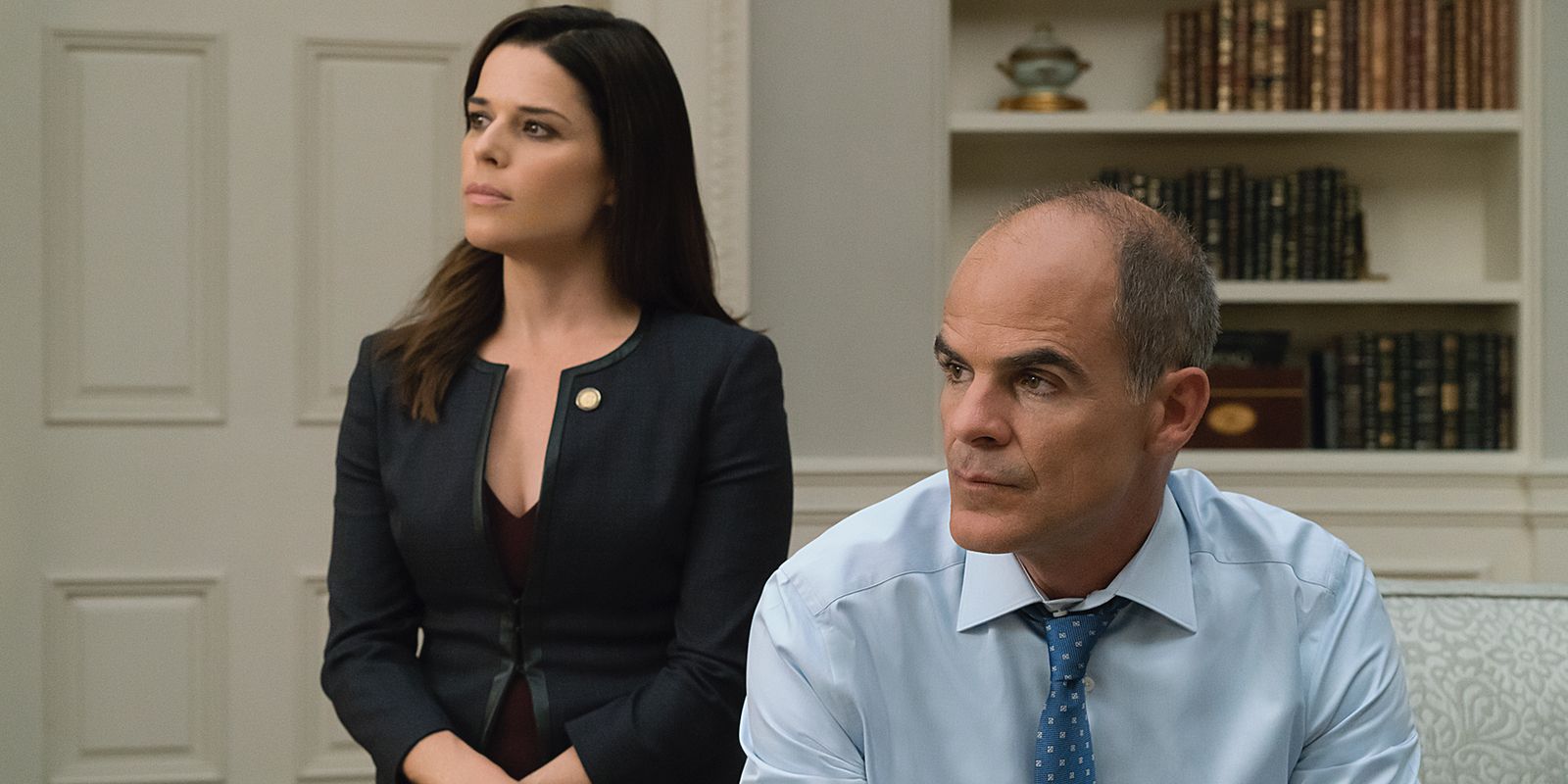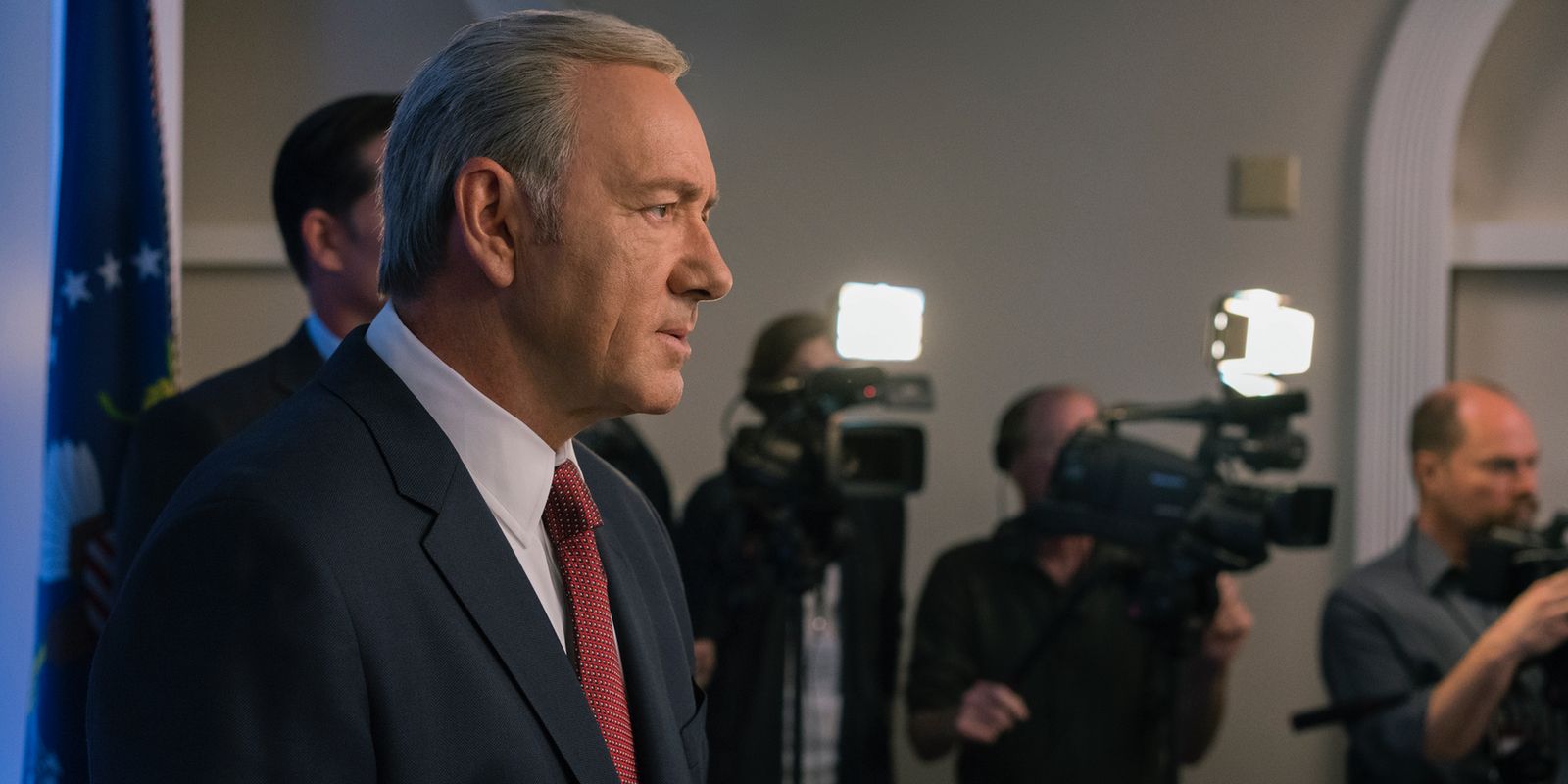Netflix's flagship series House of Cards has undergone a behind-the-scenes regime change since viewers last looked Kevin Spacey in the eye as President Frank Underwood addressed them directly. Series creator and showrunner Beau Willimon parted ways with the series after season 4 ended on a cliffhanger suggesting Frank and his running mate Claire (Robin Wright) were presumably guiding the country with an even more heavy-handed, fear-mongering agenda. Now, new co-showrunners, Melissa James Gibson and Frank Pugliese are set to bring the usual soap operatic storytelling of the Underwoods' quest for power to another level, by turning the volume up on all the elements that the show has become known for and to go for broke, aiming not so much for something new but rather for something a little more unbalanced than usual.
The fear stems from last season's ending that saw the country headed toward a costly and dangerous new War on Terror, just as the race between the Underwoods and Joel Kinnaman's homegrown presidential candidate Will Conway had begun to heat up considerably. It was the epitome of House of Cards attempting to blend the two things that it never quite managed to coax into a successful intermingling in three previous seasons: politics and watching Frank Underwood play chess with his adversaries, through a series of increasingly elaborate departures from any sort of realism. With each passing season, the show's attempts to stay grounded, even while the Underwoods fed the beast that is their political ambitions, grew less convincing. That was then compounded by over-long seasons prone to what has become known as streaming drift, wherein a repetitious succession of schemes intended to keep the Underwoods in power fill the time until things finally get interesting near the season's end.
In the early part of season 5, House of Cards divides its time between a Law & Order-style ripped-from-the-headlines approach to its story threads – voter fraud, terrorist groups with initials for names – and the race for the White House. There are hidden agendas as per usual, as Frank's opponent seeds an apparent victory while sowing his own destruction at the same time.
By now, the manner in which House of Cards' season-long narratives unfold is as transparent to the audience as Frank's intentions – even without all the leering at the camera and the lengthy asides explaining everything that's going on – so an early setback in the Underwoods' quest for power isn't a surprise; in fact, given what audiences know about the structure of any given season of the series, it could hardly be considered a spoiler. Instead, the results of the election could have been a selling point to reinvigorate audiences' interest in the series after four seasons of watching Frank get everything he wants by outplaying the one-dimensional opponents he's pitted against. But like Conway's deep, dark secret, Frank and Claire's impediment rings hollow; it's just another long con.
The series has long been intent on making the audience complicit in Frank's actions, and that passive collusion isn't going to be rewarded with Frank and Claire suddenly taking on a series of high-paying speaking gigs while Joel Kinnaman sits in the Oval Office. Even as the Underwoods contemplate losing the election and the series shifts gears to make the Underwoods into underdogs, the sense of inevitability, that the season 5 is on a bootless errand, is only strengthened.
The rest of the time, the series revels in an even greater lack of subtlety than it ever did under Willamon's watch. An early episode sees Paul Sparks' counterfeit novelist turned presidential speechwriter (and the First Lady/vice-presidential nominee's lover) Tom Yates chime in on a discussion about Lancelot that lands with a thud. The moment just hangs there like the writers couldn't decide whether or not to have Spacey comment or just let it go. Meanwhile, the series continues its ongoing attempts to make Doug Stamper's (Michael Kelly) romantic life something with narrative importance. But Doug's status as unrivaled weirdo doesn't add much to his continued fling with a woman who the show strives to remind the audience was widowed by Frank's leapfrogging her husband on the transplant list.
There's something comforting in the perverse thrill that House of Cards affords audiences in seeing a pair of duplicitous characters get everything they want with only a modicum of effort, and the show is eager to provide that experience for viewers. But in an effort to give viewers what they want in a way they're familiar with, much of the season's narrative feels like it's riding on rails: no turn is too sharp and it's mostly full steam ahead to the very end. There are some interesting sites along the way, however. To its credit, season 5 brings Campbell Scott and Patricia Clarkson on board and doesn't even bother introducing them because it would be too much of a shock not to think they weren't a part of the series all along. The season also does more to acknowledge that Robin Wright's Claire is Frank's equal when it comes to Machiavellian-level scheming, and it even goes so far as to suggest she's been the one pulling the strings this entire time.
But even those revelations don't come as much of a surprise. House of Cards has been playing the same game for so long now the idea that there's a character who isn't hiding something or is more than a mere pawn in the Underwood's quest for power would be the real revelation. More so than anything else, though, it seems Gibson and Pugliese want to take the series someplace fun. As the season progresses, it eventually gets there, but that doesn't necessarily excuse the long ride through familiar territory it takes to get there.
Next: Summer 2017 TV Premiere Dates: New & Returning Shows to Watch
House of Cards seasons 1-5 are available in their entirety on Netflix.
Photos: Netflix



